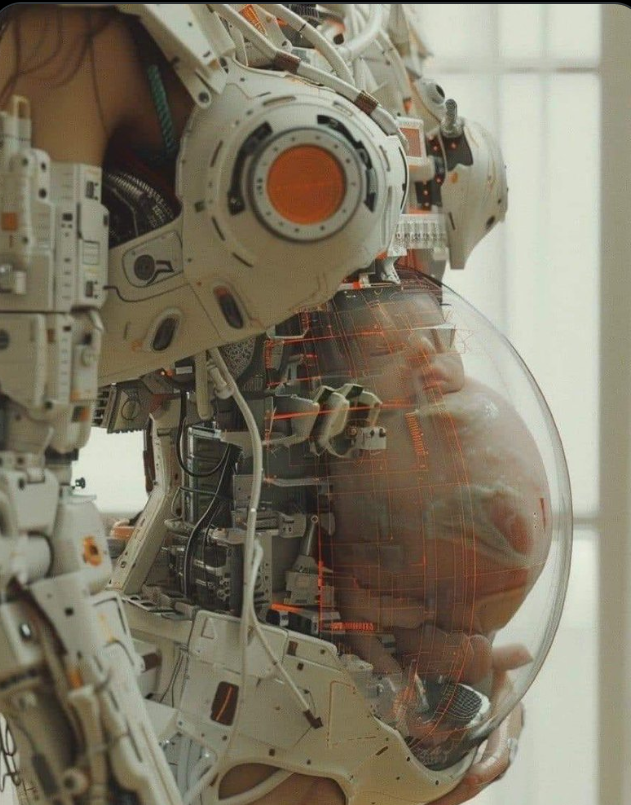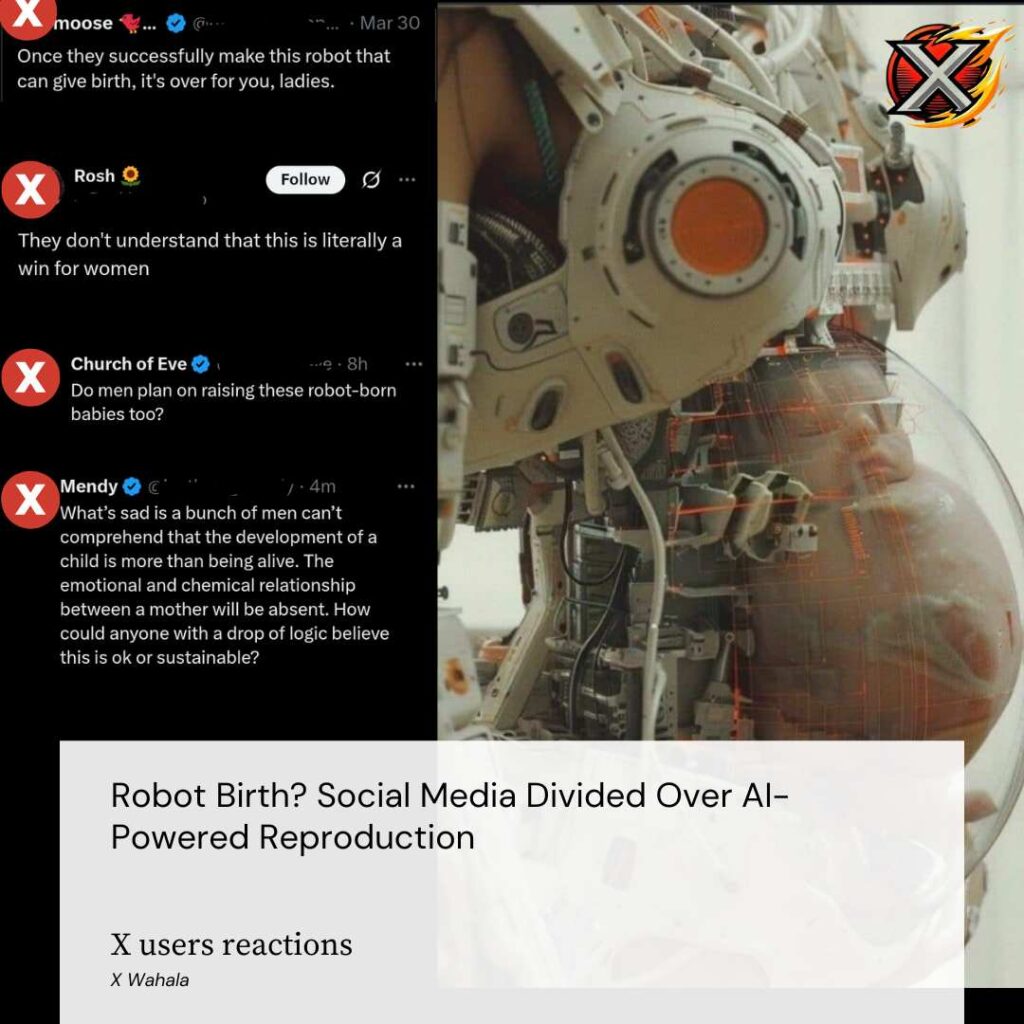Social media is once again ablaze with controversy, this time sparked by the idea of robots replacing women in childbirth.
A viral post featuring a futuristic artificial womb inside a humanoid robot has ignited a fierce debate over gender roles, technological ethics, and the future of reproduction. It all started when a user posted:
“Once they successfully make this robot that can give birth, it’s over for you, ladies.” The claim suggested that advancements in artificial womb technology could make natural childbirth and by extension, women’s role in reproduction obsolete.
However, the responses were divided. Some women embraced the idea, arguing that it would be a victory for women’s health. One replied,
“They don’t understand that this is literally a win for women.” Another added, “Women won’t have to risk themselves anymore to go through childbirth. That’s a win for women.” On the other hand, others warned of deeper societal implications.
One user countered, “Objectively, it is not. If men could procreate without women, then you all would be rendered obsolete and would start to see your status as humans diminished greatly. Bearing children is one of the only real responsibilities women ever have in modernity without that, what’s the use?”
Another took a sociological approach, stating, “If it were a win for women, all child-free feminists globally would already begin self-segregating and living in communes in different countries. Instead, you continue to hover around men in the societies that men create. Why is that?”

The bigger picture
Artificial womb technology has been a topic of scientific research for years. While it promises to reduce maternal mortality and complications during pregnancy, it also raises fundamental questions:
- Does this technology empower women by removing the risks of childbirth, or does it make them dispensable in a key biological function?
- If men no longer need women for reproduction, could this shift social dynamics and gender equality in unforeseen ways?
- Could such technology be exploited for controversial agendas, such as selective breeding or population control?
For now, robotic childbirth remains a concept rather than reality, but the conversation highlights the issues between technology and human identity. What do you think? Would artificial wombs be a blessing or a curse?


